
Baia Mare: A Romanian Gem in the Heart of Maramureș
Baia Mare, nestled in the heart of Maramureș County, is a hidden gem in northern Romania. This charming city is known for its rich history, picturesque landscapes, and vibrant cultural scene. Surrounded by rolling hills and lush forests, Baia Mare offers a perfect blend of natural beauty and urban allure. One of the city's most striking features is its well-preserved medieval old town. Stroll through the cobbled streets and admire the Gothic architecture, including the iconic Stephen's Tower and the stunning Church of St. Nicholas. The old town is also home to a variety of quaint cafes, artisan shops, and traditional Romanian restaurants, where you can savor the local cuisine. For nature enthusiasts, Baia Mare is a gateway to some of Romania's most breathtaking landscapes. The nearby Gutâi Mountains offer numerous hiking trails with panoramic views, while the Blue Lake, a unique natural wonder, provides a serene spot for relaxation and photography. In winter, the region transforms into a wonderland for skiing and snowboarding. Art and culture aficionados will find plenty to explore in Baia Mare. The city boasts several museums, including the Art Museum, showcasing works by renowned Romanian artists, and the Ethnographic Museum, which offers insights into the traditional Maramureș way of life. Throughout the year, Baia Mare hosts various festivals and events, celebrating everything from music and dance to local crafts and folklore.
Local tips in Baia Mare
- Visit the old town early in the morning to avoid crowds and enjoy a peaceful stroll.
- Try the local cuisine at traditional restaurants, especially dishes like sarmale and mămăligă.
- Bring comfortable walking shoes for exploring the cobbled streets and hiking trails.
- Check the local festival calendar to experience unique cultural events during your stay.
- Visit the Blue Lake for a picturesque and less crowded natural spot.
Baia Mare: A Romanian Gem in the Heart of Maramureș
Baia Mare, nestled in the heart of Maramureș County, is a hidden gem in northern Romania. This charming city is known for its rich history, picturesque landscapes, and vibrant cultural scene. Surrounded by rolling hills and lush forests, Baia Mare offers a perfect blend of natural beauty and urban allure. One of the city's most striking features is its well-preserved medieval old town. Stroll through the cobbled streets and admire the Gothic architecture, including the iconic Stephen's Tower and the stunning Church of St. Nicholas. The old town is also home to a variety of quaint cafes, artisan shops, and traditional Romanian restaurants, where you can savor the local cuisine. For nature enthusiasts, Baia Mare is a gateway to some of Romania's most breathtaking landscapes. The nearby Gutâi Mountains offer numerous hiking trails with panoramic views, while the Blue Lake, a unique natural wonder, provides a serene spot for relaxation and photography. In winter, the region transforms into a wonderland for skiing and snowboarding. Art and culture aficionados will find plenty to explore in Baia Mare. The city boasts several museums, including the Art Museum, showcasing works by renowned Romanian artists, and the Ethnographic Museum, which offers insights into the traditional Maramureș way of life. Throughout the year, Baia Mare hosts various festivals and events, celebrating everything from music and dance to local crafts and folklore.
When is the best time to go to Baia Mare?
Iconic landmarks you can’t miss
Queen Maria Municipal Park
Discover the serene beauty of Queen Maria Municipal Park, a lush urban oasis in Baia Mare, perfect for relaxation and outdoor activities.
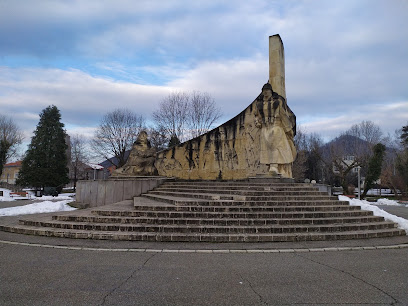
Mara Park
Explore the serene beauty of Mara Park in Baia Mare, a perfect blend of nature and tranquility for every tourist seeking relaxation.
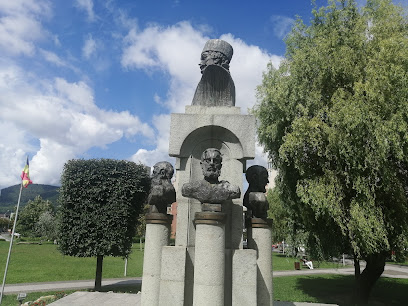
Centrul vechi
Explore the historic charm of Centrul Vechi in Baia Mare, where medieval architecture meets vibrant local culture in Romania's enchanting heart.
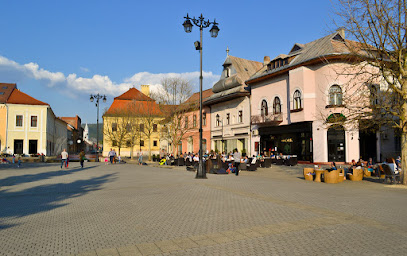
Saint Stephen Tower
Explore the historic Saint Stephen Tower in Baia Mare, a captivating landmark offering rich history, stunning views, and a glimpse into Romania's architectural heritage.
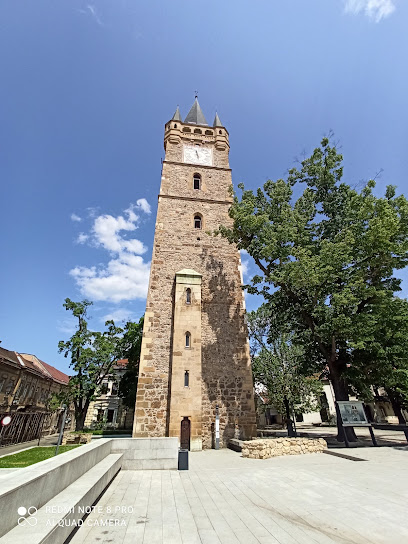
Museum of Mineralogy
Explore Baia Mare's Museum of Mineralogy, featuring extensive mineral collections and captivating geological exhibits for all ages.
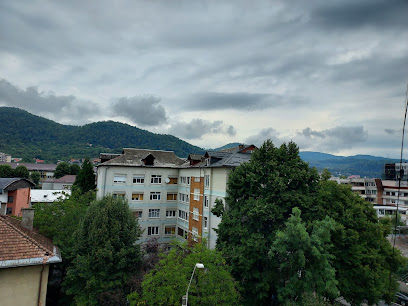
Maramureșul
Maramureșul in Baia Mare offers a vibrant shopping experience, blending modern retail with local craftsmanship for an unforgettable visit.
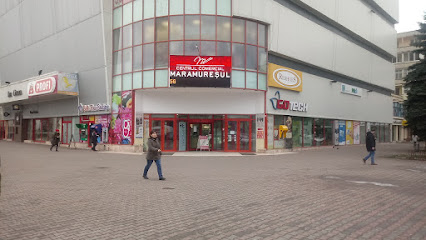
County Museum of Ethnography and Folk Art
Immerse yourself in Romania's rich cultural tapestry at the County Museum of Ethnography and Folk Art in Baia Mare, a vibrant showcase of traditional crafts and folk art.
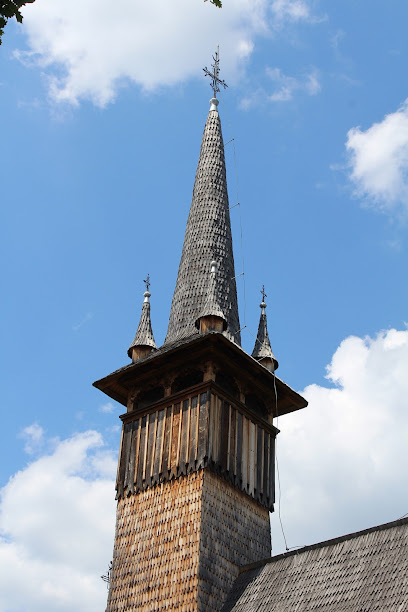
Castel Transilvania
Discover the enchanting Castel Transilvania, a luxurious hotel offering fine dining, a swimming pool, and a gateway to the beauty of Baia Mare.

Parcul Central
Explore the beauty and tranquility of Parcul Central in Baia Mare, a delightful state park perfect for outdoor activities and relaxation.
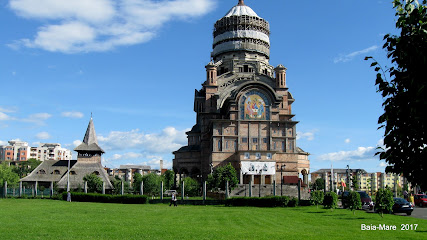
Tom&Jerry
Experience the perfect blend of cafe charm and bar ambiance at Tom&Jerry in Baia Mare, offering delicious drinks and a cozy atmosphere for every traveler.

Baia Mare Municipal Theatre
Discover the rich cultural heritage of Baia Mare at the Municipal Theatre, where every performance captivates and inspires.
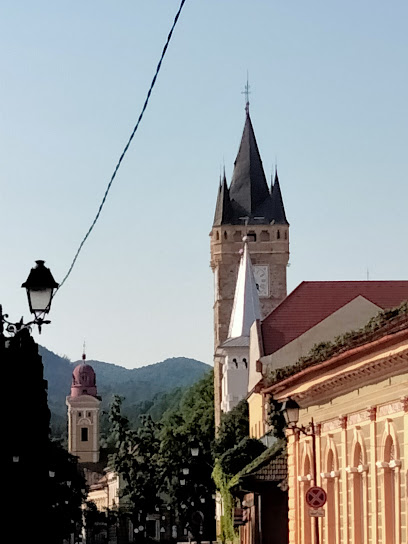
Docom Electronic
Explore a world of sound and technology at Docom Electronic, Baia Mare's premier destination for musical instruments and audio systems.
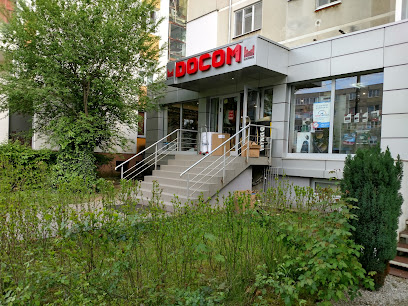
Restaurant Budapesta
Discover the authentic tastes of Eastern Europe at Restaurant Budapesta in Baia Mare, where tradition meets flavor in a cozy atmosphere.
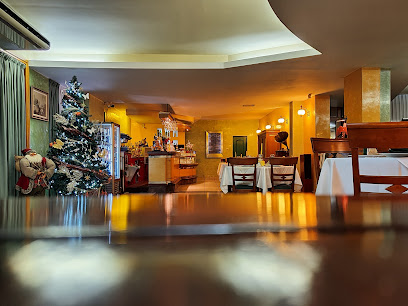
La Tour Baia Mare, Restaurant/Terasă
Experience the vibrant atmosphere and culinary delights of La Tour Baia Mare, a perfect spot for dining, drinks, and celebrations in the heart of the city.
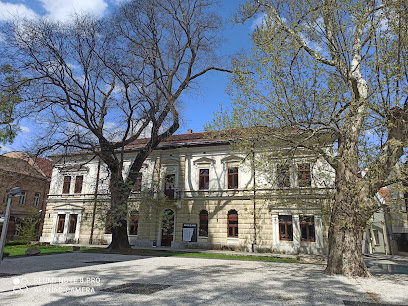
Octopus Bowling Cafe
Discover the vibrant Octopus Bowling Cafe in Baia Mare, a perfect spot for bowling, snacks, and fun with family and friends.
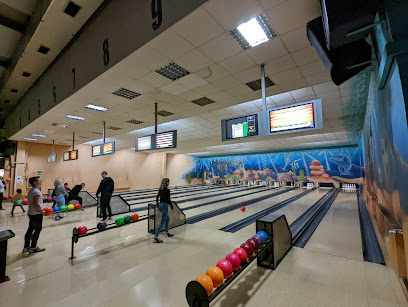
Unmissable attractions to see
Bârsana Monastery
Explore Bârsana Monastery, a UNESCO World Heritage site in Romania, known for its stunning wooden architecture and serene spiritual ambiance.
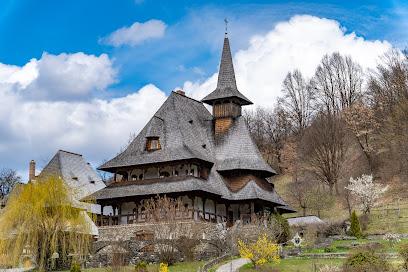
Memorial to the Victims of Communism and to the Resistance
Explore the Memorial to the Victims of Communism and to the Resistance in Sighetu Marmației, a crucial site for understanding Romania's historical struggles.
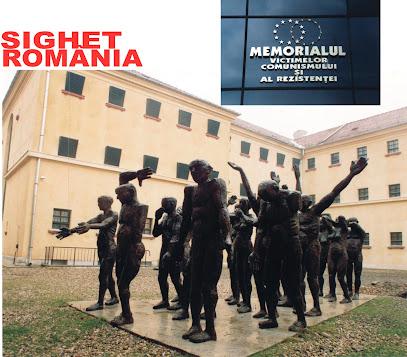
Peri-Săpânţa Monastery
Explore the breathtaking Peri-Săpânța Monastery, a wooden architectural marvel in Romania, rich in art and spiritual heritage.
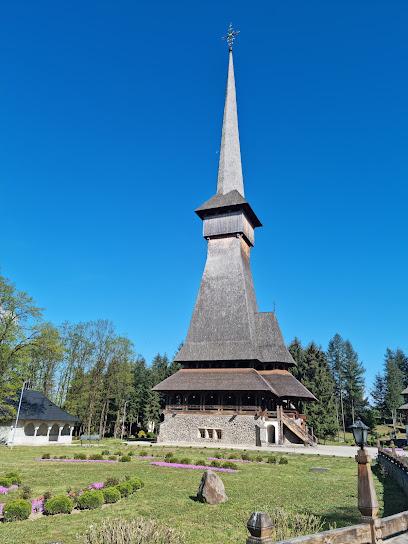
Queen Maria Municipal Park
Explore the lush greenery and vibrant atmosphere of Queen Maria Municipal Park, a serene urban escape in Baia Mare, perfect for relaxation and recreation.

Mara Park
Experience the natural beauty of Mara Park in Baia Mare, a serene oasis perfect for relaxation, recreation, and enjoying local culture.
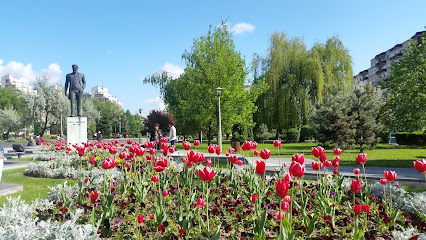
Centrul vechi
Discover the enchanting Centrul Vechi of Baia Mare, where history, culture, and culinary delights await every traveler.
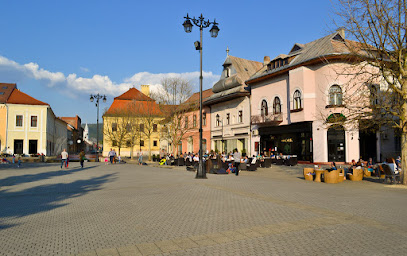
Saint Stephen Tower
Discover the stunning views and rich history at Saint Stephen Tower, a key landmark in Baia Mare that showcases the city’s cultural heritage.
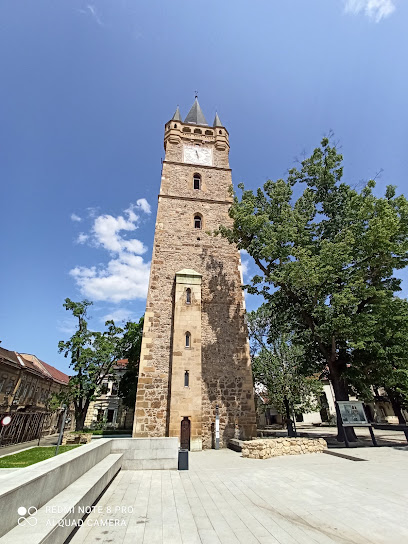
Museum of Mineralogy
Discover the breathtaking beauty of minerals at the Museum of Mineralogy in Baia Mare, showcasing thousands of stunning specimens and geological wonders.
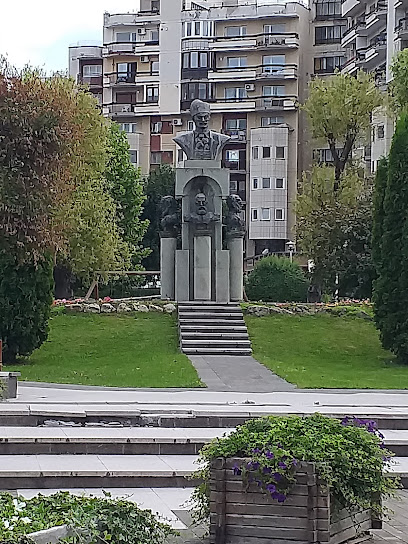
The Merry Cemetery
Discover the colorful and whimsical Merry Cemetery in Săpânța, where humor meets heritage in a unique celebration of life and death.
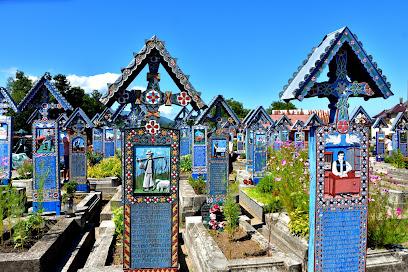
County Museum of Ethnography and Folk Art
Explore the County Museum of Ethnography and Folk Art: A Cultural Gem Showcasing Romania's Rich Folk Traditions and Artistic Heritage.
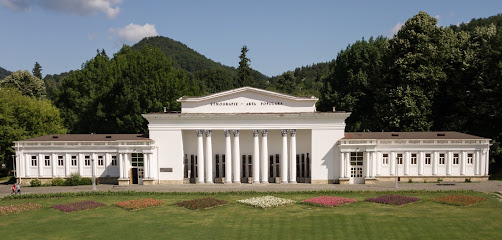
Church of the Nativity of the Virgin (The wooden church in Ieud Hill)
Explore the exquisite wooden Church of the Nativity of the Virgin in Ieud, a UNESCO World Heritage Site rich in history and architectural beauty.
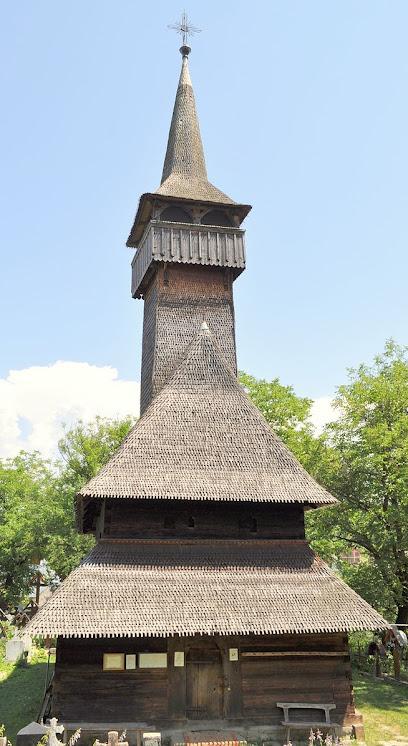
Church of St. Nicholas
Explore the historical charm and tranquil beauty of the Church of St. Nicholas in Budești, a gem of Romanian architecture and spirituality.
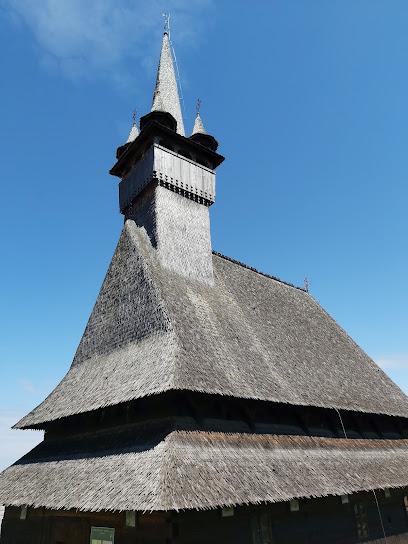
Butcher's Bastion
Explore Butcher's Bastion: A historical gem in Baia Mare, blending medieval architecture with stunning views and rich cultural heritage.
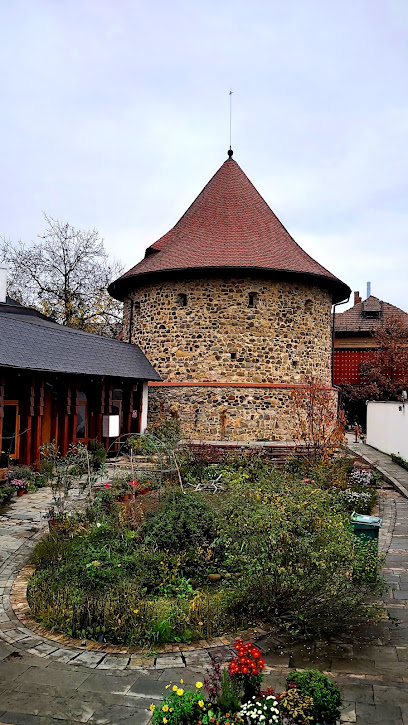
County Museum of History and Archeology Maramures
Explore the County Museum of History and Archeology Maramures to uncover the fascinating stories and artifacts of Romania's rich heritage.
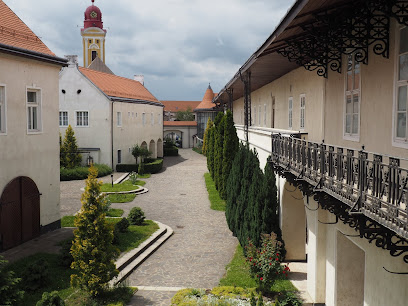
Muzeul Judeţean de Artă «Centrul Artistic Baia Mare»
Explore the cultural richness of Baia Mare at the Muzeul Județean de Artă, where art meets history in a vibrant museum experience.
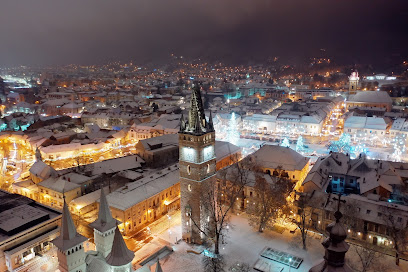
Essential places to dine
Restaurant Millennium Baia Mare
Discover culinary excellence at Restaurant Millennium Baia Mare - where exquisite flavors meet breathtaking views in the heart of Romania.
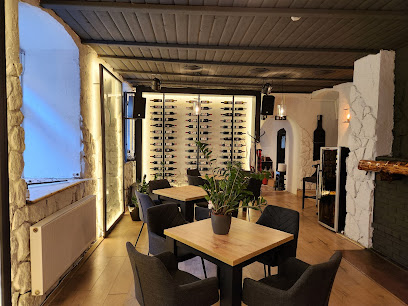
Barbarossa
Experience the vibrant culinary scene at Barbarossa in Baia Mare - where delicious food meets lively atmosphere.
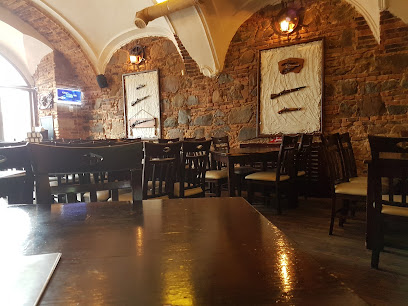
La Pălincie
Discover authentic Romanian cuisine at La Pălincie in Baia Mare, where tradition meets modern dining in a warm and welcoming atmosphere.
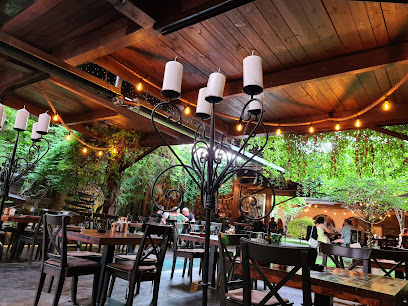
Butoiașu' cu Bere
Savor traditional Romanian dishes in a cozy atmosphere at Butoiașu' cu Bere - A top dining destination in Baia Mare.
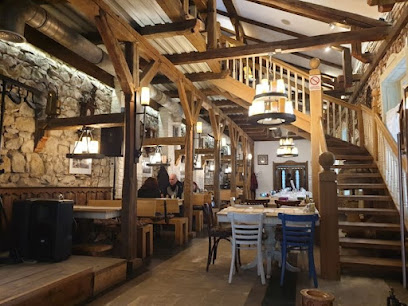
Crișan House
Experience authentic Romanian cuisine at Crișan House in Baia Mare—where tradition meets innovation in every delicious dish.
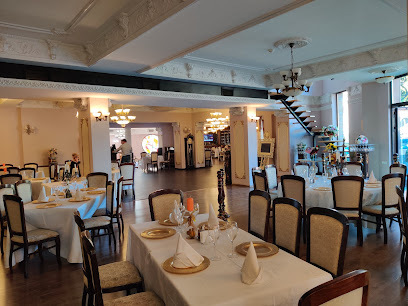
Bastion
Experience authentic Romanian flavors at Bastion in Baia Mare – where tradition meets modern cuisine in an inviting atmosphere.
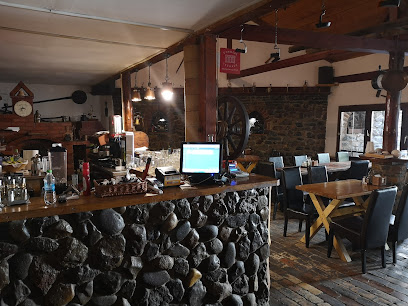
Log Out
Discover Log Out in Baia Mare: A lively restaurant offering gourmet burgers, authentic pizzas, and a charming garden ambiance for every taste.
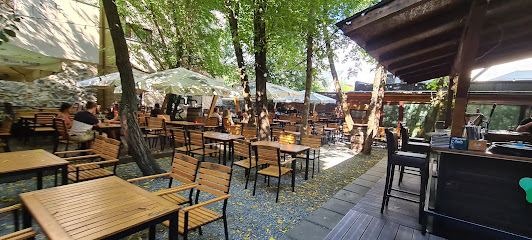
La Creperie
Discover the flavors of Baia Mare at La Creperie – a culinary gem specializing in exquisite crepes that delight every palate.
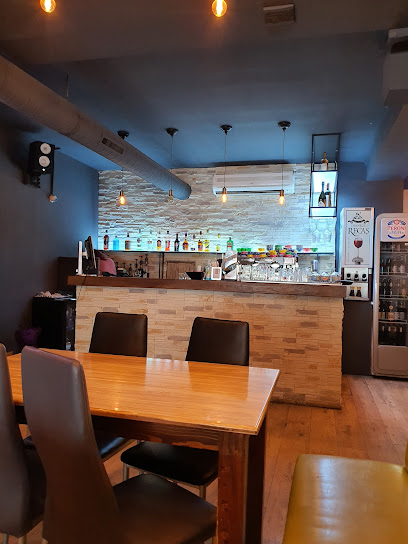
Pronto
Discover exquisite dining at Restaurant Pronto in Baia Mare - where tradition meets modern gastronomy in a vibrant atmosphere.
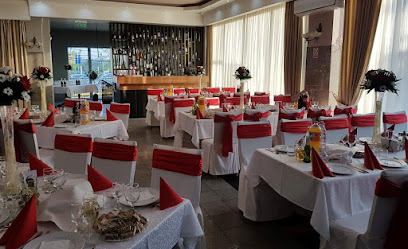
Restaurant Parc Athos
Discover authentic Romanian cuisine at Restaurant Parc Athos in Baia Mare, where every dish tells a story and every meal is a celebration.
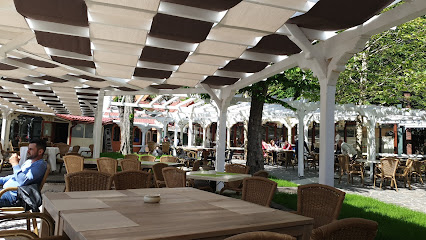
Il Padrino
Experience authentic Italian flavors at Il Padrino in Baia Mare – where every meal is a celebration of taste.

Glory Days
Experience authentic Romanian cuisine at Glory Days in Baia Mare - where every meal is a celebration of flavor and hospitality.

Le Bistrot
Experience authentic Romanian cuisine at Le Bistrot in Baia Mare – where tradition meets flavor in a cozy setting.

Gran Gala
Discover authentic Italian cuisine at Gran Gala in Baia Mare – where every meal is a celebration of flavor and tradition.
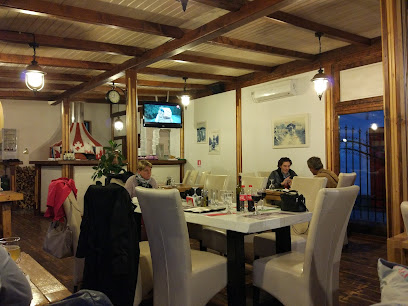
Restaurant Budapesta
Discover authentic Eastern European and Hungarian cuisine at Restaurant Budapesta in Baia Mare - where every meal tells a story.
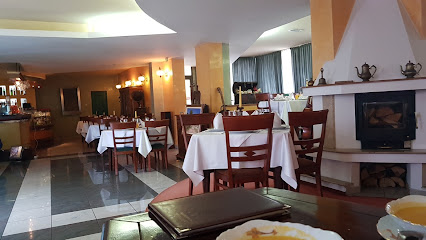
Markets, malls and hidden boutiques
VIVO! Baia Mare
Experience the best of shopping, dining, and entertainment at VIVO! Baia Mare, a hub of activity in Romania's scenic landscape.
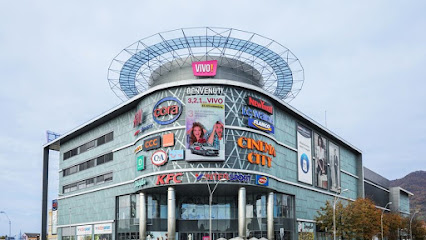
Baia Mare Value Centre
Explore the Baia Mare Value Centre: A premier shopping destination in Romania with diverse shops, dining options, and entertainment for every traveler.
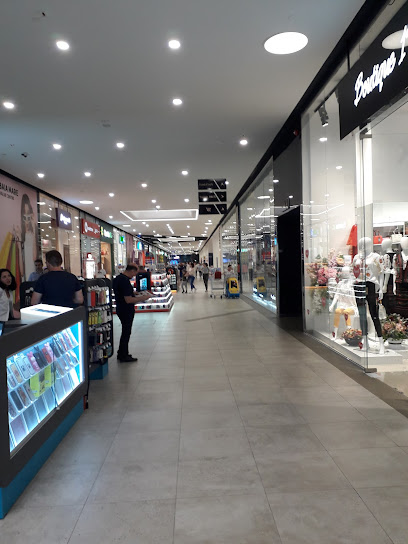
Maramureșul
Explore the stunning landscapes and rich traditions of Maramureșul, a unique Romanian region filled with cultural heritage and natural beauty.
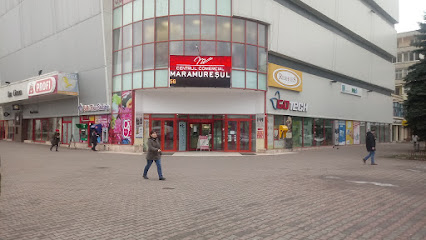
Baia Mare Shopping Park
Explore Baia Mare Shopping Park: A vibrant shopping destination with diverse retail, dining, and entertainment options in Romania.
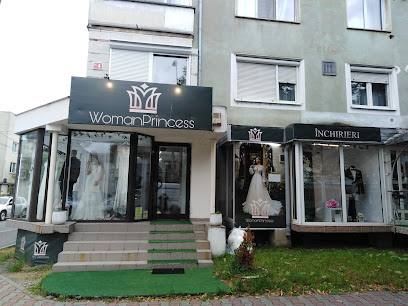
TEDI RETAIL SHOP S.R.L.
Explore an extensive range of affordable home goods at TEDI Retail Shop in Baia Mare, perfect for souvenirs and home decor.
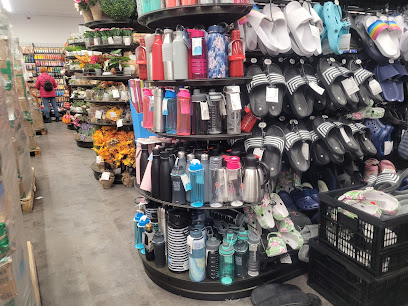
Bershka
Explore the latest fashion trends at Bershka in Baia Mare, offering a diverse selection of clothing and accessories for every style.
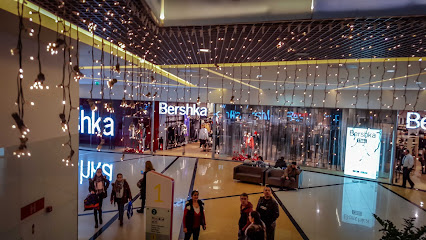
SOUVENIRS - CADOURI
Explore the unique charm of Souvenir Land in Baia Mare, where local craftsmanship meets unforgettable gifts for every traveler.
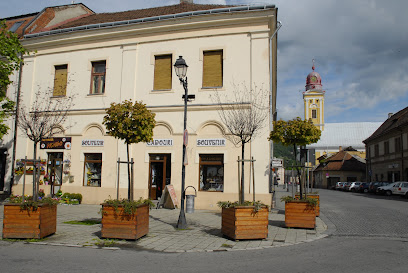
Alex Shop
Discover unique treasures and sustainable finds at Alex Shop, Baia Mare's beloved second-hand store, perfect for eco-friendly shopping.
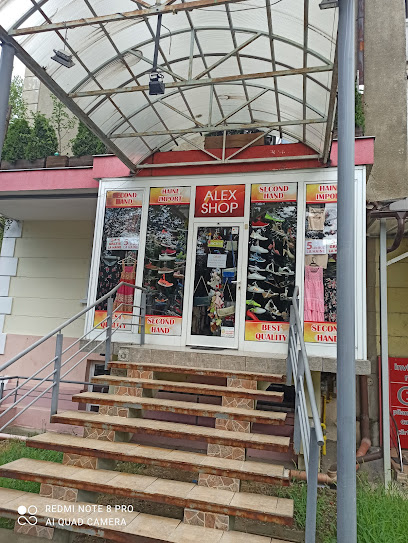
Ambiance deco
Explore Ambiance Deco in Baia Mare for unique gifts and souvenirs that reflect the rich culture and craftsmanship of Romania.
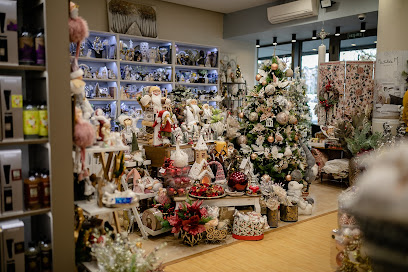
MyHousing Artizanat
Explore MyHousing Artizanat in Baia Mare for unique handcrafted gifts, pottery, and wicker creations that celebrate local artistry and culture.
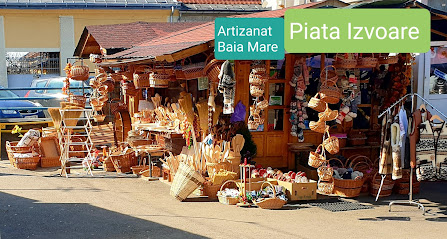
Pui Carne Baia Mare
Discover gourmet meats at Pui Carne Baia Mare, where quality meets local tradition in a charming boutique setting.
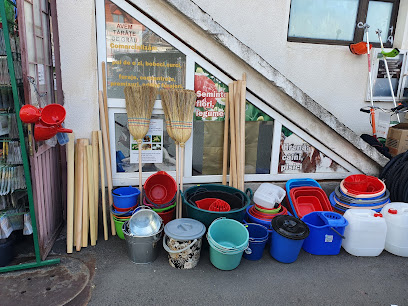
La doi paşi
Explore Baia Mare with ease at La doi paşi, your go-to convenience store for snacks, essentials, and local delights.

CREEPS
Discover unique handmade ceramics, original paintings, and custom stickers at CREEPS, Baia Mare's charming gift shop.
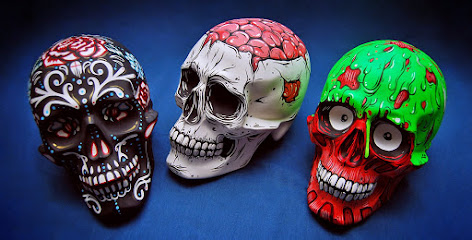
PASTEL, magazin de cadouri si suveniruri
Explore the charm of Baia Mare at PASTEL, your go-to gift shop for unique souvenirs and local treasures that embody Romanian culture.
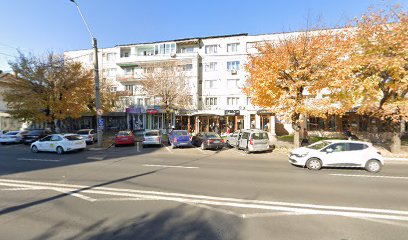
Art Butik
Discover unique handmade gifts and local crafts at Art Butik, the perfect shopping spot for memorable souvenirs and artistic treasures.
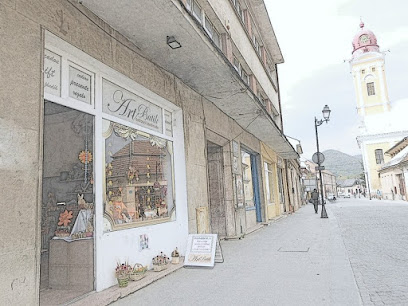
Essential bars & hidden hideouts
Barbarossa
Experience the vibrant culinary scene at Barbarossa, Baia Mare's premier bar and restaurant, where every bite tells a story.
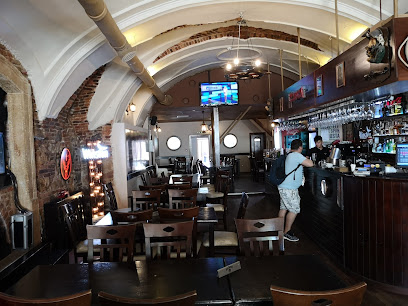
Office Pub
Experience the lively culture of Baia Mare at Office Pub, where delicious food and refreshing drinks meet a vibrant atmosphere.
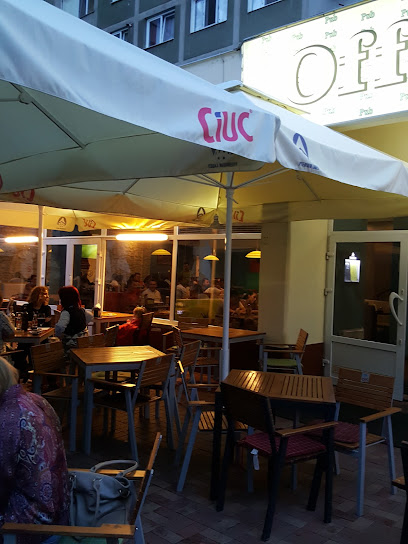
Log Out
Discover the vibrant atmosphere of Log Out in Baia Mare, where delicious food meets a lively pub experience in a charming garden setting.
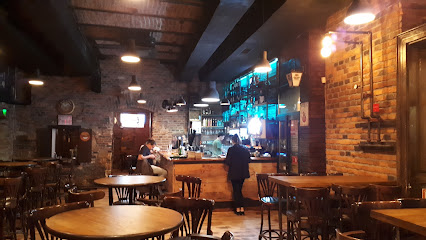
Scottish Pub
Discover the heart of Scotland in Baia Mare at Scottish Pub, where traditional cuisine meets a lively atmosphere for an unforgettable experience.
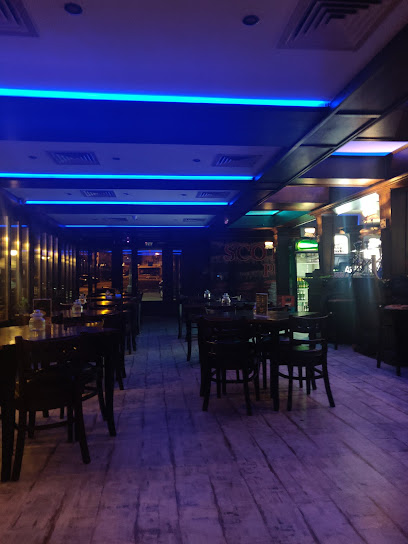
Sahara Pub
Sahara Pub in Baia Mare offers a unique blend of pub, café, and hookah bar, perfect for enjoying food, drinks, and vibrant entertainment.
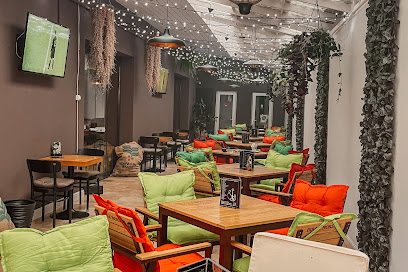
Pick-up Narghila Baia Mare
Discover the lively ambiance and unique narghila offerings at Pick-up Narghila in Baia Mare, a must-visit bar for all travelers seeking a local experience.
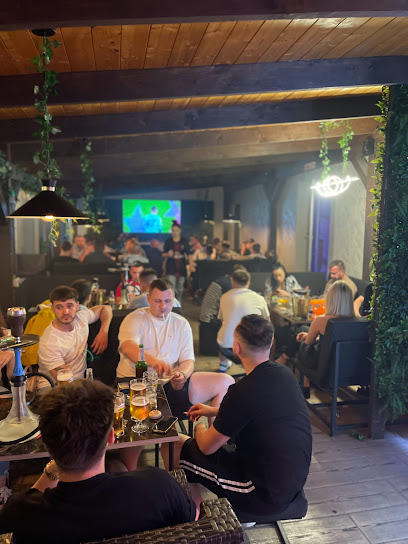
Shadows Rock Bar
Discover the vibrant atmosphere of Shadows Rock Bar in Baia Mare, where local flavors and a lively ambiance await your visit.
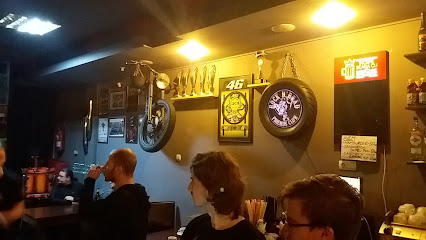
Colonello
Experience the vibrant nightlife of Baia Mare at Colonello, a lively bar with a unique blend of local culture and delicious drinks.
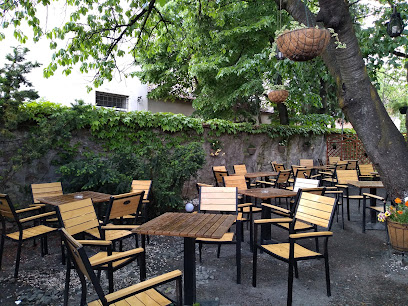
Vintage Bar
Discover Vintage Bar in Baia Mare, a cozy pub offering a delightful selection of drinks and a vibrant atmosphere for tourists and locals alike.
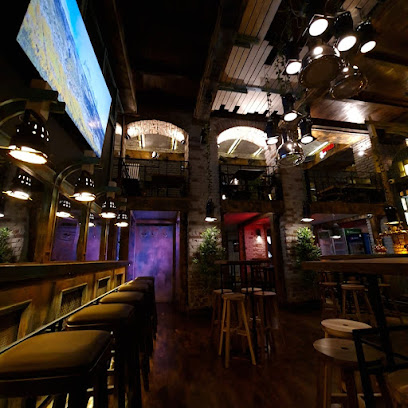
Terasa OJT
Discover Terasa OJT in Baia Mare: A charming bar offering a vibrant atmosphere, delightful drinks, and a taste of local culture.
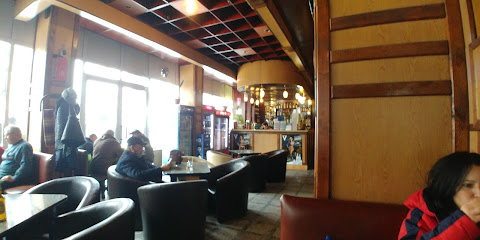
Narghilla Underground
Experience the vibrant nightlife at Narghilla Underground, a must-visit bar in Baia Mare for a unique drink selection and cozy atmosphere.
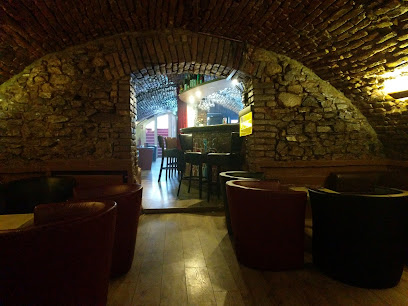
Art Cafe Bar
Discover the artistic charm of Baia Mare at Art Cafe Bar—a vibrant spot for drinks, culture, and unforgettable experiences.
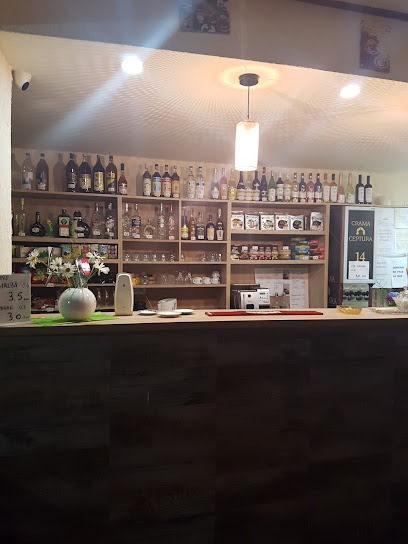
Never Old Cafe Bar
Discover the vibrant atmosphere of Never Old Cafe Bar in Baia Mare, where great drinks and friendly faces await every visitor.
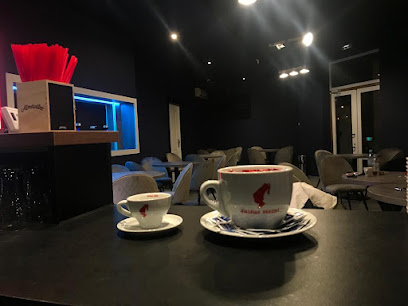
Bar Acasuca
Discover the vibrant atmosphere and unique drinks at Bar Acasuca, the perfect spot for relaxation in Baia Mare, Romania.
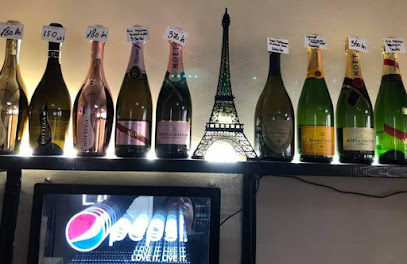
Local Phrases
-
- HelloSalut
[sah-loot] - GoodbyeLa revedere
[lah reh-veh-deh-reh] - YesDa
[dah] - NoNu
[noo] - Please/You're welcomeTe rog
[teh rohg] - Thank youMulțumesc
[mool-tsoo-mesk] - Excuse me/SorryScuzați-mă
[skoo-zah-tsee mah] - How are you?Ce faci?
[chay fahch?] - Fine. And you?Bine. Și tu?
[bee-neh. shee too?] - Do you speak English?Vorbiți engleză?
[vor-beetz eng-leh-zah?] - I don't understandNu înțeleg
[noo oon-tseh-leg]
- HelloSalut
-
- I'd like to see the menu, pleaseAș dori să văd meniul, vă rog
[ush doh-ree suh vud meh-nyool, vuh rohg] - I don't eat meatNu mănânc carne
[noo muh-nuhnk kahr-neh] - Cheers!Noroc!
[noh-rohk] - I would like to pay, pleaseAș dori să plătesc, vă rog
[ush doh-ree suh pluh-tesk, vuh rohg]
- I'd like to see the menu, pleaseAș dori să văd meniul, vă rog
-
- Help!Ajutor!
[ah-zhoo-tor] - Go away!Du-te!
[doo-teh] - Call the Police!Sună la Poliție!
[soo-nuh lah poh-lee-tsee-eh] - Call a doctor!Sună un doctor!
[soo-nuh oon dohk-tohr] - I'm lostM-am pierdut
[mahm pyehr-dooht] - I'm illSunt bolnav
[soont bohl-nahv]
- Help!Ajutor!
-
- I'd like to buy...Aș dori să cumpăr...
[ush doh-ree suh koom-puhr] - I'm just lookingDoar mă uit
[doh-ar muh oow-eet] - How much is it?Cât costă?
[kaht koh-stah?] - That's too expensiveEste prea scump
[eh-steh preh-ah skoomp] - Can you lower the price?Puteți să scădeți prețul?
[poo-tehts sah skuh-dehts preh-tsool?]
- I'd like to buy...Aș dori să cumpăr...
-
- What time is it?Cât e ceasul?
[kaht eh cheh-ah-sool?] - It's one o'clockEste ora unu
[eh-steh oh-rah oon-oo] - Half past (10)Jumătate (la zece)
[zhoo-muh-tah-teh (lah zeh-cheh)] - MorningDimineața
[dee-mee-neh-tsa] - AfternoonDupă-amiază
[doo-puh ah-mee-ah-zah] - EveningSeara
[seh-ah-rah] - YesterdayIeri
[yehr] - TodayAstăzi
[ahs-tuhz] - TomorrowMâine
[muh-ee-neh] - 1Unu
[oo-noo] - 2Doi
[doy] - 3Trei
[tray] - 4Patru
[paht-roo] - 5Cinci
[cheench] - 6Șase
[shah-seh] - 7Șapte
[shahp-teh] - 8Opt
[ohpt] - 9Nouă
[noo-ah] - 10Zece
[zeh-cheh]
- What time is it?Cât e ceasul?
-
- Where's a/the...?Unde este unul/o...
[oon-deh eh-steh oo-noo/oh] - What's the address?Care este adresa?
[kah-reh eh-steh ah-dreh-sah?] - Can you show me (on the map)?Puteți să-mi arătați (pe hartă)?
[poo-tehts sah-mee ah-rah-tahts (peh hahr-tah)?] - When's the next (bus)?Când este următorul (autobuz)?
[kahnd eh-steh oor-muh-toh-rool (ow-toh-booze)?] - A ticket (to ....)Un bilet (spre ...)
[oon bee-let (spreh ...)]
- Where's a/the...?Unde este unul/o...
History of Baia Mare
-
Baia Mare, located in the Maramureș County of Romania, was founded in the 14th century. The town's name, which translates to 'Great Mine,' reflects its origins as a mining settlement. It quickly grew in importance due to its rich deposits of precious metals like gold and silver.
-
During the Middle Ages, Baia Mare became a significant economic and cultural center. The town's prosperity was largely driven by its mining industry, which attracted skilled laborers and artisans from across Europe. The city was granted several privileges by Hungarian kings, including the right to hold markets and fairs, which further boosted its development.
-
In 1467, the town was the site of a notable historical event known as the Baia Mare Rebellion. The rebellion was a peasant uprising against the local nobility and oppressive feudal practices. Although it was ultimately suppressed, the rebellion highlighted the social tensions of the era and is an important part of the city's history.
-
In the 18th century, Baia Mare came under the control of the Austrian Habsburg Empire. This period saw significant changes in the town's administration and infrastructure. The Habsburgs invested in modernizing the mining industry, introducing new technologies and methods that increased productivity.
-
The 19th century was a time of cultural flourishing for Baia Mare. The establishment of the Baia Mare Artists' Colony in 1896 marked a significant cultural milestone. This colony attracted painters and artists from across Europe, who were inspired by the picturesque landscapes and traditional rural life of the region. The legacy of this artistic movement is still evident in the city's cultural life today.
-
The 20th century brought significant changes and challenges to Baia Mare. The two World Wars and the subsequent changes in political regimes affected the town deeply. During the communist era, Baia Mare became a center of heavy industry, which had lasting environmental impacts. However, the post-communist period has seen efforts to revitalize the city and preserve its historical and cultural heritage.
-
Today, Baia Mare is a vibrant city that blends its rich historical past with modern developments. The city is known for its beautiful architecture, including well-preserved medieval buildings, churches, and the iconic Stephen’s Tower. It is also a cultural hub, hosting numerous festivals, art exhibitions, and cultural events throughout the year.
Baia Mare Essentials
-
Baia Mare is accessible via several modes of transportation. The nearest international airport is Cluj-Napoca International Airport (Avram Iancu Cluj International Airport), located approximately 150 kilometers away. From Cluj-Napoca, you can take a direct bus or train to Baia Mare, with the journey typically taking around 3 to 4 hours. Alternatively, you can rent a car and drive, enjoying the scenic landscapes of Transylvania and Maramureș. There are also direct train connections from Bucharest and other major Romanian cities.
-
Baia Mare is a compact city with a well-organized public transportation system that includes buses and taxis. Buses are an affordable and convenient way to get around the city, with tickets available for purchase at kiosks and onboard. Taxis are also readily available and relatively inexpensive. For those who prefer more flexibility, car rentals are an option, particularly for exploring the surrounding areas. Walking and cycling are great ways to explore the city center and its attractions.
-
The official currency in Romania is the Romanian Leu (RON). Credit cards are widely accepted in hotels, restaurants, and larger shops. However, it is advisable to carry some cash for smaller establishments, markets, and rural areas. ATMs are plentiful in Baia Mare, and currency exchange services are available at banks and exchange offices. It's a good idea to have some local currency on hand upon arrival.
-
Baia Mare is generally a safe city for tourists. Nonetheless, it is important to take standard precautions. Avoid walking alone at night in unfamiliar areas and keep an eye on your belongings in crowded places. While Baia Mare does not have specific high-crime areas targeting tourists, staying vigilant and aware of your surroundings is always wise. Stick to well-lit and populated areas, especially after dark.
-
In case of emergency, dial 112 for immediate assistance, which is the European emergency number used in Romania. The local police station and medical facilities are available in Baia Mare. It is recommended to have travel insurance that covers medical emergencies. Pharmacies are readily available in the city for minor health issues, and many pharmacists speak English.
-
Fashion: Do dress modestly when visiting religious sites. Avoid overly revealing clothing in public places. Religion: Do respect local customs and traditions. When visiting churches, dress conservatively and be quiet and respectful. Public Transport: Do be polite and offer your seat to elderly passengers. Don’t eat or drink on public transport. Greetings: Do greet people with a handshake. A friendly 'Bună ziua' (Good day) is appreciated. Eating & Drinking: Do try local dishes and accept food offerings graciously. Don’t refuse hospitality, as it is considered impolite.
-
To experience Baia Mare like a local, visit the local markets such as the Central Market (Piața Centrală) for fresh produce and traditional goods. Engage with locals, who are often friendly and eager to share stories about their city. Don’t miss the historical sites like the Stephen's Tower and the Village Museum to get a sense of the city’s rich heritage. For a unique experience, take a stroll through the picturesque Old Town and enjoy a coffee at one of the charming cafes.
Trending Landmark in Baia Mare
-
Queen Maria Municipal Park
-
Mara Park
-
Centrul vechi
-
Saint Stephen Tower
-
Museum of Mineralogy
-
Maramureșul
-
County Museum of Ethnography and Folk Art
-
Castel Transilvania
-
Parcul Central
-
Tom&Jerry
-
Baia Mare Municipal Theatre
-
Docom Electronic
-
Restaurant Budapesta
-
La Tour Baia Mare, Restaurant/Terasă
-
Octopus Bowling Cafe
Nearby Cities to Baia Mare
-
Things To Do in Satu Mare
-
Things To Do in Cluj-Napoca
-
Things To Do in Mukachevo
-
Things To Do in Nyiregyhaza
-
Things To Do in Uzhhorod
-
Things To Do in Debrecen
-
Things To Do in Ivano-Frankivsk
-
Things To Do in Sighisoara
-
Things To Do in Chernivtsi
-
Things To Do in Suceava
-
Things To Do in Deva
-
Things To Do in Košice
-
Things To Do in Miskolc
-
Things To Do in Prešov
-
Things To Do in Arad













